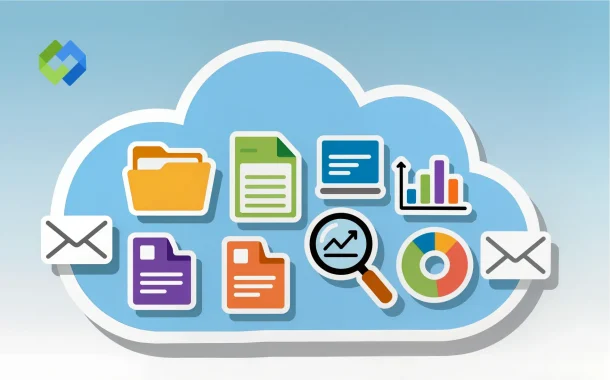These tools are important for modern teams because they make work faster and more organized. They improve collaboration by keeping everyone on the same page. Teams can track progress in real time, spot delays, and make quick decisions. They also save time and reduce mistakes by keeping all project information in one place.
Table of Contents
Table of Contents
Benefits of Using Cloud Tools for Projects
1. Improved Team Collaboration
Cloud tools allow team members to share updates, files, and comments in real time. Everyone can see the latest changes immediately, reducing misunderstandings and keeping work coordinated. Teams can discuss tasks directly within the tool, avoiding long email chains.
2. Access from Anywhere
With cloud-based tools, team members can work from any location using a computer, tablet, or smartphone. This flexibility makes remote work easier and ensures that project progress continues even if someone is traveling or working from home.
3. Better Task and Deadline Tracking
Cloud tools provide clear visibility of all tasks, deadlines, and milestones. Managers can assign work, track progress, and identify potential delays early. This helps teams meet deadlines and manage workloads effectively.
4. Time and Resource Savings
Many repetitive tasks, like reminders, updates, or reporting, can be automated with cloud tools. Data is stored in one place, making it easy to find information, reducing wasted time and effort for the team.
5. Enhanced Security and Integration
Cloud tools protect sensitive project information with secure login, encryption, and backup options. They often integrate with other software like calendars, communication apps, and file storage, streamlining workflows.
6. Increased Productivity and Efficiency
By keeping all information organized and tasks visible, cloud tools help teams focus on actual work instead of administrative tasks. This improves overall productivity and ensures projects are completed on time with fewer errors.
Features to Look for in Cloud Project Management Software
- Task and Workflow Management: Create tasks and subtasks, set deadlines, and assign priorities. Use Kanban or Scrum boards to organize work visually. Checklists and task dependencies help manage complex projects step by step.
- Team Collaboration and Communication: Chat, comment on tasks, and get real-time notifications. Share files within the tool and tag team members to keep everyone informed. This reduces confusion and keeps work coordinated.
- Time Tracking and Resource Planning: Track how much time is spent on tasks and manage resources efficiently. Assign work based on availability, balance workloads, and avoid overloading team members.
- Reporting and Analytics: Dashboards show project progress and team performance. Charts, graphs, and exportable reports make it easy to analyze data and share insights with the team or stakeholders.
- Automation and Customization: Automate repetitive tasks like reminders or status updates. Use templates and custom triggers to save time, ensure consistency, and speed up project workflows.
- File and Document Management: Store all project files in one place for easy access. Version control prevents losing past edits, and permissions let you decide who can view or edit files.
- Visual Planning Tools: Gantt charts and Kanban boards provide a clear view of project timelines, milestones, and task dependencies. These visual tools help teams plan and track work effectively.
Top Cloud Tools for Project Management
1. Teamwork
Teamwork is a cloud-based platform that helps teams manage projects, tasks, and client work in one place. It provides Gantt charts, task dependencies, and milestone tracking. Built-in collaboration tools like messaging, file sharing, and notifications make teamwork smoother, while detailed reports track progress and team performance.
2. Zoho Projects
Zoho Projects is a flexible tool for planning, tracking, and automating workflows. It offers Gantt charts, task lists, milestones, and time tracking. The platform integrates easily with other Zoho apps and popular third-party tools. Teams can also automate recurring tasks and monitor project health with built-in dashboards.
3. ProofHub
ProofHub combines task management, discussions, and document proofing in a single interface. Teams can assign tasks, set deadlines, and comment directly on files. It reduces the need for multiple apps, keeps communication organized, and is suitable for both small and medium-sized teams.
4. Airtable
Airtable blends spreadsheet features with project management tools. Users can create custom databases, track tasks, and visualize workflows using Kanban, calendar, or gallery views. It’s highly flexible, allowing teams to tailor the system to their specific projects and processes.
5. LiquidPlanner
LiquidPlanner is ideal for teams needing predictive scheduling and resource management. It calculates project timelines automatically based on task priorities and team availability. This makes it easier to handle complex projects with shifting deadlines and changing workloads.
6. Workfront
Workfront is designed for enterprise-level project management. It provides advanced dashboards, workflow automation services, and reporting tools. Large teams can coordinate tasks, monitor progress, and maintain consistent standards across multiple projects efficiently.
Choosing the Right Cloud Tool for Your Team
Choosing the right cloud tool for your team starts with understanding your team’s needs. Think about the size of your team, the type of projects you handle, and how you like to track work. Some tools are better for small teams, while others are made for large or complex projects.
Next, compare features and pricing. Look for tools that have the functions your team will use most, such as task tracking, collaboration, automation, or reporting. Try free trials or demos to see how easy the tool is to use. Getting feedback from your team helps pick a tool everyone can work with comfortably.
Common Challenges and How to Overcome Them
- Resistance to Change: Some team members may be used to old methods and hesitate to adopt new tools. Overcome this by providing proper training, showing the benefits, and involving the team in the tool selection process.
- Managing Multiple Tools: Using too many apps can cause confusion and slow down work. Choose a tool that covers most of your needs or integrates smoothly with other software to simplify workflows.
- Data Security Concerns: Sensitive project information can be at risk if security is weak. Use strong passwords, encryption, controlled access, and regular backups to keep data safe.
- Tracking Progress Accurately: Without proper setup, it can be hard to monitor tasks and deadlines. Set clear task assignments, use dashboards, and regularly review project progress to stay on track.
- Team Communication Issues: Miscommunication can slow projects. Encourage using built-in messaging, task comments, and notifications so everyone stays updated and aligned.
Conclusion
Cloud project management tools make teamwork easier and projects more organized. They help track tasks, improve communication, and save time. Choosing the right tool depends on your team’s size, needs, and workflows. By picking a tool that fits well and using it properly, teams can stay productive, meet deadlines, and complete projects efficiently.














